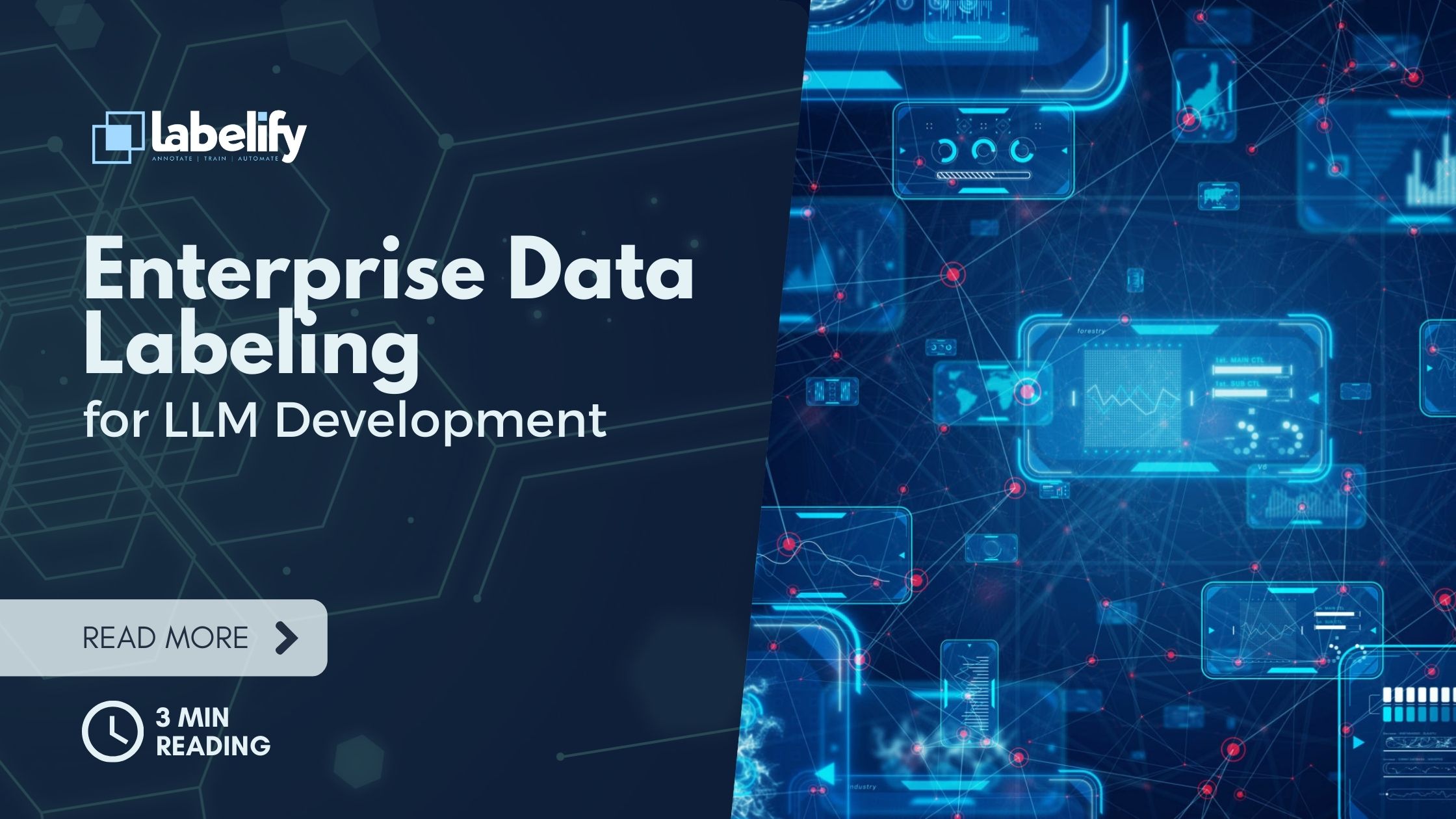We're witnessing a wave of wise, world-wise weavers of data, deftly defining the digital destinies of large language models (LLMs).
In our quest for linguistic liberation, we're revolutionizing enterprise data labeling, harnessing the heterogeneous hues of human experience to train technology.
We're embedding ethical echelons through Reinforcement Learning with Human Feedback, ensuring our creations echo our collective conscience.
As custodians of this craft, we're committed to the convergence of cultural complexity and computational clarity.
This is the path we pave, a future where every labeled datum liberates and elevates our LLMs' learning.
Tailoring Data for Domains
We're utilizing refined datasets tailored to specific industries to enhance the precision and utility of large language models (LLMs) in those domains. By honing in on the unique jargon, regulatory nuances, and intricate workflows of fields like healthcare and finance, we're forging tools that don't just mimic human expertise—they amplify it. Our approach isn't just innovative; it's revolutionary.
We're breaking new ground, ensuring that these intelligent systems aren't just powerful—they're precise, culturally attuned, and ethically aligned. In our hands, LLMs are transforming into specialized allies that understand the context, uphold values, and drive liberation. We're not just redefining the possible; we're reimagining the future of industry-specific AI, where freedom and data dance in harmony.
Annotator Diversity Enhancement
Embracing a wealth of perspectives, we're enhancing our data labeling processes with a broad spectrum of annotators from different backgrounds to foster more inclusive and representative LLM development. Our vision is clear: to build models that grasp the nuanced tapestries of human communication and thought. By enriching our pool of annotators, we're not just ticking boxes; we're weaving a global narrative, ensuring our LLMs resonate with a symphony of voices, liberating them from the shackles of homogeneity.
| Diversity Dimension | Benefit to LLMs |
|---|---|
| Cultural | Richer Context |
| Linguistic | Broader Nuance |
| Academic | Deeper Insights |
| Geographic | Global Relevance |
| Socioeconomic | Inclusive Range |
Together, we're embarking on a transformative journey, championing a future where every voice is heard and valued in the AI we create.
Integrating RLHF Techniques
Building on our commitment to annotator diversity, we're integrating RLHF techniques to align our LLMs more closely with human judgments and societal norms.
We envision a future where our large language models not only comprehend text but also embody the values and ethics that are important to our communities.
Through RLHF, we're teaching our algorithms to reflect on their outputs, to listen, and to correct themselves, guided by human feedback that represents a tapestry of global perspectives.
This isn't just about building smarter machines; it's about crafting AI that understands the nuances of human morality.
Our path forward is clear: develop LLMs that champion fairness, embrace inclusivity, and serve as catalysts for liberation.
We're not just coding – we're teaching wisdom.
Upholding Intellectual Property
As we refine our data labeling processes, it's crucial to respect intellectual property rights and ensure that each dataset's provenance is transparent and lawful. The liberation of innovation hinges on our ability to navigate the complex web of intellectual property with integrity and foresight. Here's our vision for upholding these standards:
- Verify Sources: Rigorously authenticate dataset origins, ensuring all data is sourced from legitimate, authorized entities.
- License Diligently: Obtain and respect the necessary licenses when using proprietary data, safeguarding creator rights.
- Attribute Rigorously: Credit data creators meticulously, honoring their contributions to our collective progress.
- Audit Continuously: Implement robust auditing mechanisms that detect and prevent the use of unlicensed intellectual property within our datasets.
Strengthening Data Governance
Continuing our commitment to ethical data use, we're focusing on strengthening data governance to ensure the highest standards of data integrity, quality, and accuracy in LLM development. Envisioning a future where data empowers freedom, we prioritize stringent frameworks that champion robust datasets, liberating users from concerns over reliability.
| Pillar | Objective | Impact on LLMs |
|---|---|---|
| Integrity | Ensure consistency and security | Reliable performance over time |
| Quality | Promote high standards of data | Enhanced generalization |
| Accuracy | Achieve precision in task execution | Improved task-specific outcomes |
We're crafting a world where LLMs are trusted allies, thanks to meticulous governance, and where the liberation that comes from accurate information is accessible to all.
perguntas frequentes
How Are Companies Addressing the Scalability Challenges When It Comes to Labeling Vast Amounts of Data for Domain-Specific Llms?
We're tackling scalability by automating parts of our data labeling, using AI to pre-label before human review.
We've adopted micro-tasking, where huge datasets are broken down and distributed among many workers for efficiency.
Moreover, we're constantly innovating crowd-sourcing strategies to handle the sheer volume, ensuring even domain-specific LLMs can learn from vast, diverse data without compromising on quality or speed.
It's about working smarter, not harder.
What Measures Are Being Taken to Ensure the Mental Well-Being of Annotators Who Work on Sensitive or Emotionally Challenging Content?
We're implementing measures like psychological support and regular breaks to protect our annotators' mental health. They're handling tough content, and we're committed to their well-being.
By providing counseling and promoting a supportive work environment, we're ensuring they stay balanced and resilient. It's about creating a space where they can thrive while tackling challenging tasks, making their welfare our top priority.
We're striving for a liberated and empowered team.
How Is the Performance of LLMs Measured Post-Integration of RLHF to Ensure the Feedback Loop Is Effectively Enhancing AI Behavior?
We're measuring LLM performance post-RLHF integration by closely monitoring AI behavior and outcomes.
We've set up continuous feedback loops where real-time human input refines AI responses, ensuring they align with evolving ethical standards.
What Are the Potential Legal Implications for Businesses if LLMs Inadvertently Use Copyrighted Material Despite Adherence to Intellectual Property Protocols?
We're considering the legal risks businesses face if our LLMs inadvertently use copyrighted material. Despite our careful adherence to intellectual property protocols, such slip-ups could lead to lawsuits or fines.
We're innovating to mitigate these risks, ensuring our technology respects creators' rights. It's crucial for us to stay ahead, guaranteeing our LLMs embody freedom without overstepping legal boundaries.
It's about striking the balance between liberation and law.
Can You Describe the Role of Blockchain or Other Advanced Technologies in Ensuring Data Integrity and Traceability Within LLM Development Processes?
We're exploring blockchain to guarantee data integrity and traceability in LLM development.
This tech's decentralized nature ensures that once data's recorded, it can't be altered, boosting transparency.
It's a game changer, offering a secure foundation for data we rely on, and it represents freedom from traditional constraints.
Advanced technologies like this are key to pioneering trustworthy AI that's not just innovative but also liberating for us all.
Conclusão
As we pioneer the frontier of LLMs, we're reshaping data labeling, crafting domain-specific datasets with unmatched precision.
Our diverse team of annotators brings global insights, while RLHF techniques embed human values at AI's core.
We're not just developers; we're custodians of a future where data integrity and governance set new standards.
Together, we're building a world where AI's potential isn't just imagined, but fully realized, one data point at a time.




